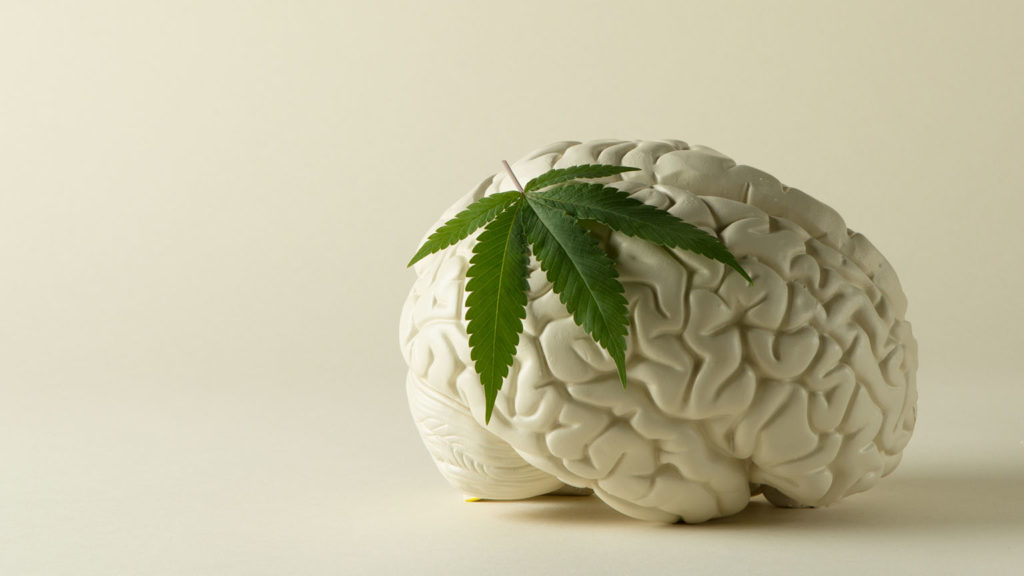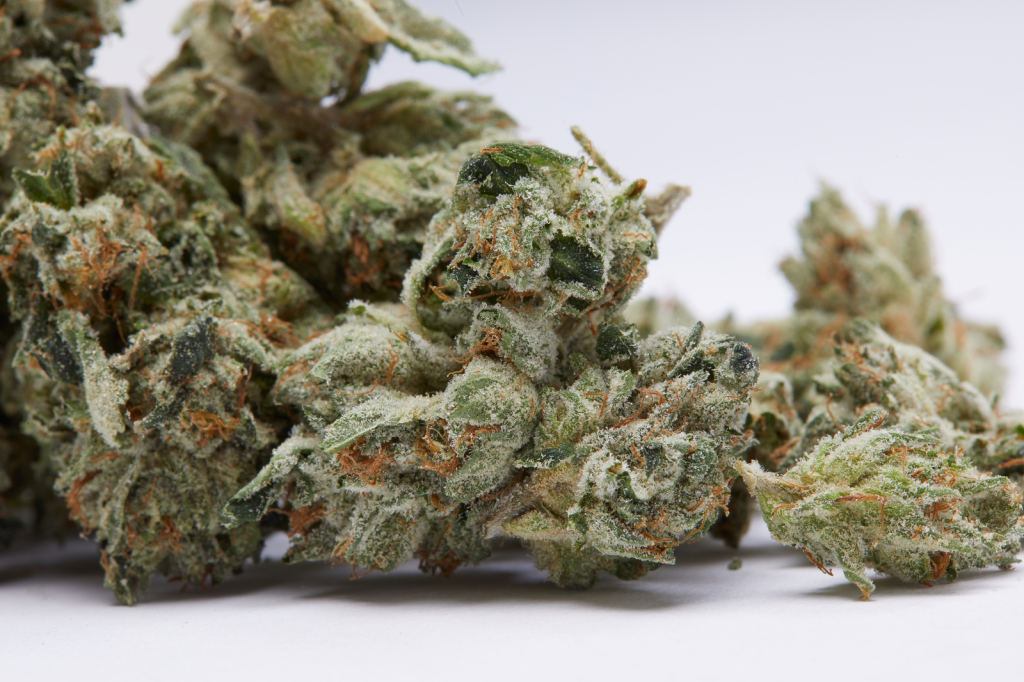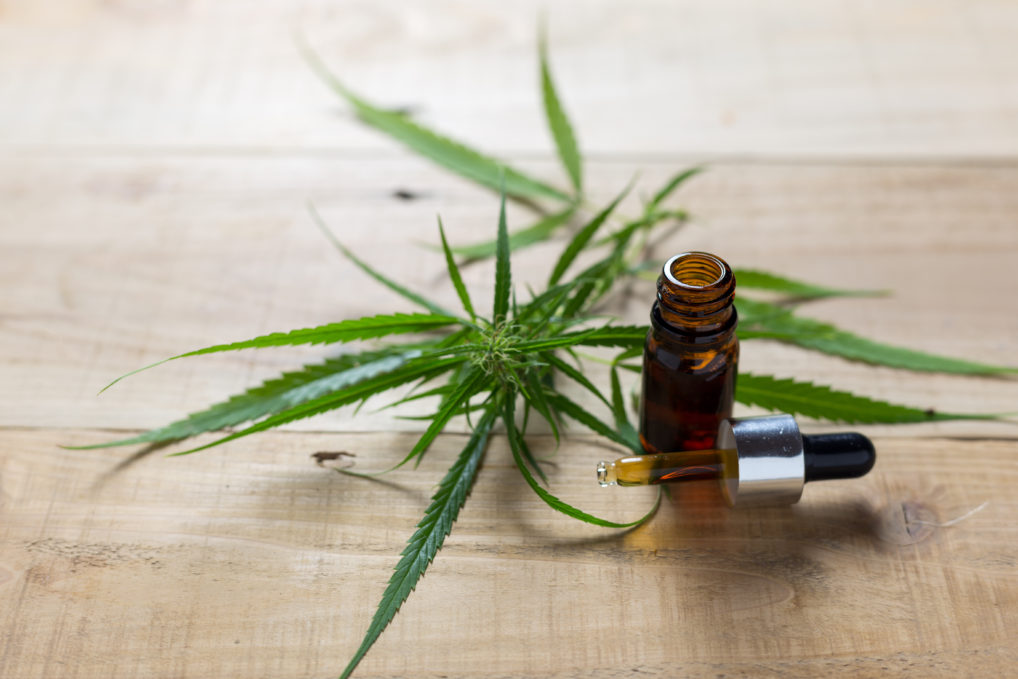While blacking out is a common term for consuming too much alcohol, greening out occurs when someone consumes too much cannabis. Learn what causes a green out, what to do if you're experiencing it, and how to prevent it from happening in the first place.
What causes someone to green out?
Greening out is primarily the result of consuming more cannabis than one's body can comfortably handle. Several factors contribute to this phenomenon.
THC
Tetrahydrocannabinol (THC) is the main psychoactive compound in cannabis responsible for its intoxicating effects. High concentrations of THC, especially in products like concentrates, edibles, or potent strains of cannabis flower, can lead to stronger and potentially overwhelming effects.
Consumption method
Different methods of consuming cannabis can result in varying intensities of its effects. For example, when you eat an edible, your liver metabolizes THC into a more potent compound called 11-hydroxy-THC. This form of THC can have more intense and longer-lasting effects than when it's smoked or vaped.
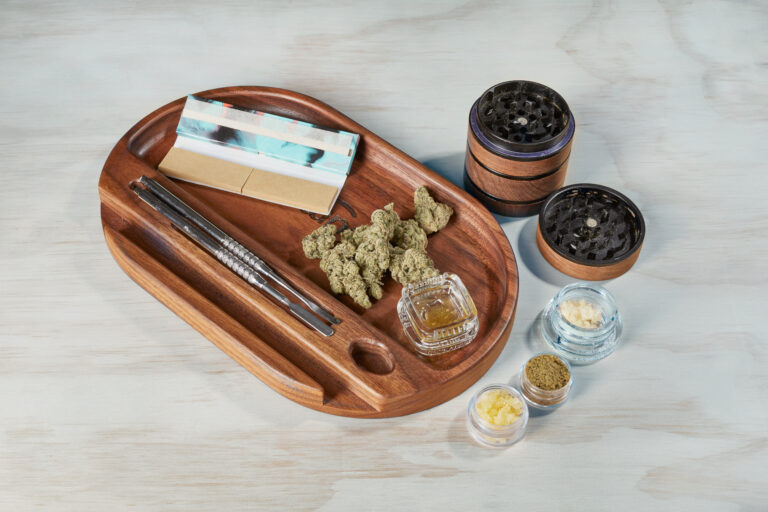 Photo by: Gina Coleman/Weedmaps
Photo by: Gina Coleman/WeedmapsImage lightbox

With smoking or vaping, you might feel the effects more rapidly than with edibles, making it easier to gauge how much you've consumed. However, it's still possible to overdo it and find yourself greening out after smoking too much.
Tolerance
Regular cannabis consumers can develop a tolerance to its effects, meaning they require larger amounts to achieve the same results. Conversely, someone with a low tolerance, like a new consumer or someone who uses cannabis infrequently, is more susceptible to greening out from smaller amounts.
Dehydration and hunger
Being dehydrated or having an empty stomach might amplify the effects of THC or contribute to feelings of dizziness and nausea.
Set and setting
Your environment and psychological state can influence your reaction to cannabis.
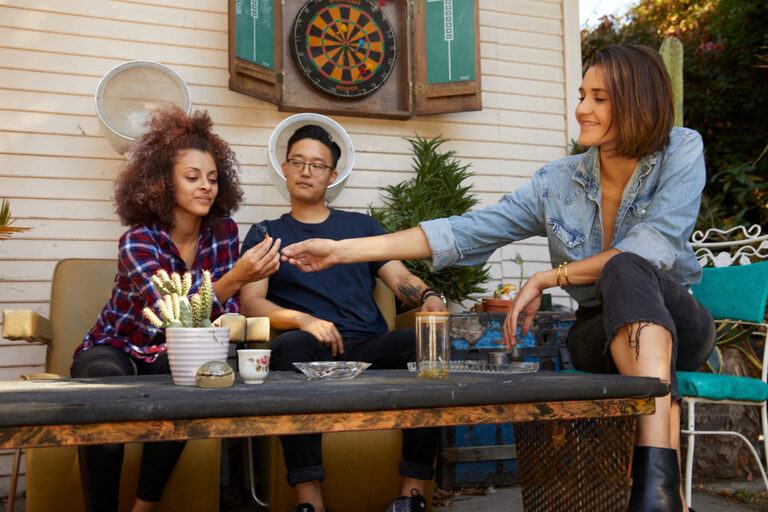 Photo by: Gina Coleman/Weedmaps
Photo by: Gina Coleman/WeedmapsImage lightbox

Being in an unfamiliar or uncomfortable setting, having pre-existing anxiety, or encountering a stressful situation while high can exacerbate feelings of paranoia or disorientation.
Individual differences
People react to cannabis in unique ways due to their unique endocannabinoid system. Some individuals may be more prone to adverse reactions than others.
Mixing with other substances
Combining cannabis with alcohol, prescription medications, or other drugs can amplify its effects or lead to unpredictable reactions. It can be dangerous to mix different substances.
Note: If you're new to cannabis or trying a new consumption method, start with low doses — 5 milligrams of THC or less — and gradually increase as you become familiar with how it affects your body.
What does greening out feel like?
The experience of greening out can vary from person to person, but some common symptoms and sensations include:
- Nausea and vomiting
- Dizziness
- Paranoia and anxiety
- Panic attacks
- Rapid heart rate
- Cold sweats or hot flashes
- Confusion
- Feelings of immobility
- Trembling or shaking
- Feeling faint or lightheaded
- Hallucinations
If weed is the only substance you've consumed, the symptoms should dissipate without requiring medical care. However, if you're greening out after consuming a combination of weed with drinking or harder drugs, known as “crossfading,” seek medical attention.
How long does greening out last?
Symptoms of a greenout can last anywhere from a few minutes to a couple of hours. While this can feel like a long time when you're high, trust that there's a light at the end of the tunnel and that you will not die from overconsumption.
Can you injure yourself greening out?
No evidence supports that greening out from cannabis use alone can cause any damage to your body. However, there are instances where, for example, cannabis can aggravate things in people with underlying heart issues or cause over-sedation, which suppresses breathing if one combines cannabis with a sedative like sleeping pills. Consuming too much weed at once may feel alarming, but there's no evidence it will cause lasting issues.
How do I prevent greening out?
Weed affects people differently, so a green-out is more likely to happen to some individuals than others.
 Photo by: Gina Coleman/Weedmaps
Photo by: Gina Coleman/WeedmapsImage lightbox

There are many things you can do to prevent greening out:
- Start low and go slow: This is a popular adage because it works, especially if you're new to cannabis or trying a new product. Begin with a small amount, like a few puffs of a joint or a 2.5 milligram THC edible, and wait for an hour to see how it affects you before consuming more.
- Stay hydrated: Drink plenty of water before, during, and after consumption. This can help mitigate some adverse effects.
- Be extra cautious with edibles: It can take anywhere from 30 minutes to 2 hours — or even longer — for the effects of edibles to be felt. This delayed onset can lead people to consume too much, thinking they haven't taken enough. Wait for at least a couple of hours before deciding to take more. When eating edibles, it's also essential to carefully measure your dose. If you don't pay attention to how many milligrams of THC are in your brownie, you can easily consume way too much and experience an unpleasant high. You may want to avoid eating any homemade edibles to be safe.
- Know your tolerance: Everyone's body responds to cannabis differently. Factors like body weight, metabolism, and tolerance level all affect how cannabis affects you. Regular consumers might have a higher tolerance than occasional or first-time consumers.
- Understand potency: Be aware of the THC content in the cannabis product you're using. Higher THC levels usually mean stronger effects. If you're consuming edibles, the effects can be more potent and longer-lasting compared to smoking or vaping. A low-dose edible is considered 5 milligrams of THC or less; anything over 5 milligrams of THC can be considered a strong dose for some individuals.
- Eat food first: Consuming cannabis on an empty stomach can intensify its effects. Having a balanced meal beforehand can help buffer the effects.
- Avoid mixing weed with alcohol: Alcohol can intensify the effects of THC. If you choose to consume both, be cautious about the amounts.
- Be in a comfortable setting: Your environment can influence your experience. Being in a familiar, safe space can help reduce anxiety and paranoia.
- Read up on strains: Before trying any new strain, do some research. Understanding what you're consuming and how it might affect you can help you make informed decisions.
At the end of the day, it's all about knowing yourself and your limits. If you're someone who needs only one or two hits off a joint to get high, don't feel compelled to smoke more—resist peer pressure if it heads your way.
What to do if you're greening out
If you're experiencing symptoms of greening out, there are many things you can do to manage the discomfort:
- Remind yourself that this, too, shall pass: While it may feel intense and uncomfortable, the feeling is temporary and will pass.
- Breathe: Practicing deep and controlled breathing can help you calm down. Inhale deeply, hold for a few seconds, and then exhale slowly.
- Find a comfortable place: Move to a quiet, familiar environment. If you're indoors, lie down and try to relax.
- Distract yourself: Listen to calm music, watch a light-hearted movie, or flip through a magazine to help pass the time.
- Ground yourself: Techniques such as holding onto an object, feeling the ground beneath you, or even describing what you see, hear, or feel can help you stay connected to reality.
- Stay hydrated: Drink water or hydrating beverages. Avoid alcohol, as it can intensify the effects of cannabis.
- Eat something: Consuming a light snack can sometimes counteract the effects. Some people find that sugary snacks or drinks can help, although it's important to consume sugar in moderation.
- Avoid caffeine: While it might be tempting to counteract the effects with coffee or energy drinks, caffeine can exacerbate anxiety and paranoia.
- Seek company: Having a trusted friend or family member by your side can be comforting. Let them know what's happening so they can help reassure and calm you down.
- Sleep: If possible, try to get some rest. Sleep can help your body metabolize the THC more quickly and alleviate the symptoms.
- Limit stimulus: Bright lights, loud noises, or intense visuals can be overwhelming. Dim the lights, keep the environment quiet, and minimize disturbances.
- Seek medical help if necessary: If your symptoms are extreme, last several hours, or you have underlying health conditions, seek medical attention. While fatal overdoses from cannabis are unheard of, it can still be a traumatic experience, and it's better to be safe.
How to care for someone who's greening out
If you're with someone who is experiencing the symptoms of too much weed, or you're feeling them yourself, there are many ways to ride out the wave and quell some of the discomfort.
 Photo by: Gina Coleman/Weedmaps
Photo by: Gina Coleman/WeedmapsImage lightbox

Here are some things you can do to help someone who is greening out:
- Stay calm: Your calm demeanor can reassure the person experiencing discomfort. Speak in gentle tones and tell them that what they're experiencing is temporary.
- Breathe deeply with them: Instruct them to take deep, slow breaths. This can help to calm anxiety and reduce the feeling of panic.
- Help them get comfortable: Move them to a quiet, cozy spot where they can sit or lie down. If you're in a crowded or noisy environment, try to find a more isolated location.
- Offer water: Dehydration can worsen the symptoms. Offer them water to sip slowly.
- Offer a light, bland snack: While a snack might help some people, nausea is common when greening out. If they feel like eating, offer something light and bland.
- Distract them: Talk to them about a neutral or positive topic, play their favorite mellow music, or put on a light-hearted show or movie. This can help take their mind off the uncomfortable feeling.
- Limit stimulus: If they're sensitive to light or sound, dim the lights and reduce noise. Offer a blanket or something comforting to hold onto.
- Be patient: Remember that the effects will wear off. This person might need several hours to feel better — especially if they consumed a large amount or a potent strain.
- Seek medical attention if you're concerned: If their symptoms are very severe, not getting better after a few hours, or if they have underlying health conditions that might be exacerbated by cannabis, like heart issues, consider seeking medical help. While fatal cannabis overdoses are unheard of, it can still be a traumatic experience, and it's better to be safe.
Bottom line
Prevention is usually the best medicine when it comes to smoking too much weed. Staying hydrated and within your cannabis limits will help ensure you enjoy a pleasant high, but if you do go too far, get as comfortable as possible and ride out the wave. Rest assured, the unpleasantness of greening out won't last forever, and you'll be back to normal in time.
FAQ
Is greening out overdosing?
Many people mistakenly refer to greening out as overdosing on cannabis or THC. However, an overdose refers to someone consuming so much of a substance at once it causes life-threatening symptoms or death. According to the National Institute of Drug Abuse, there have been no reports of death due to overconsumption of cannabis.
Written by Tony Daniels | Featured image by Gina Coleman/Weedmaps


